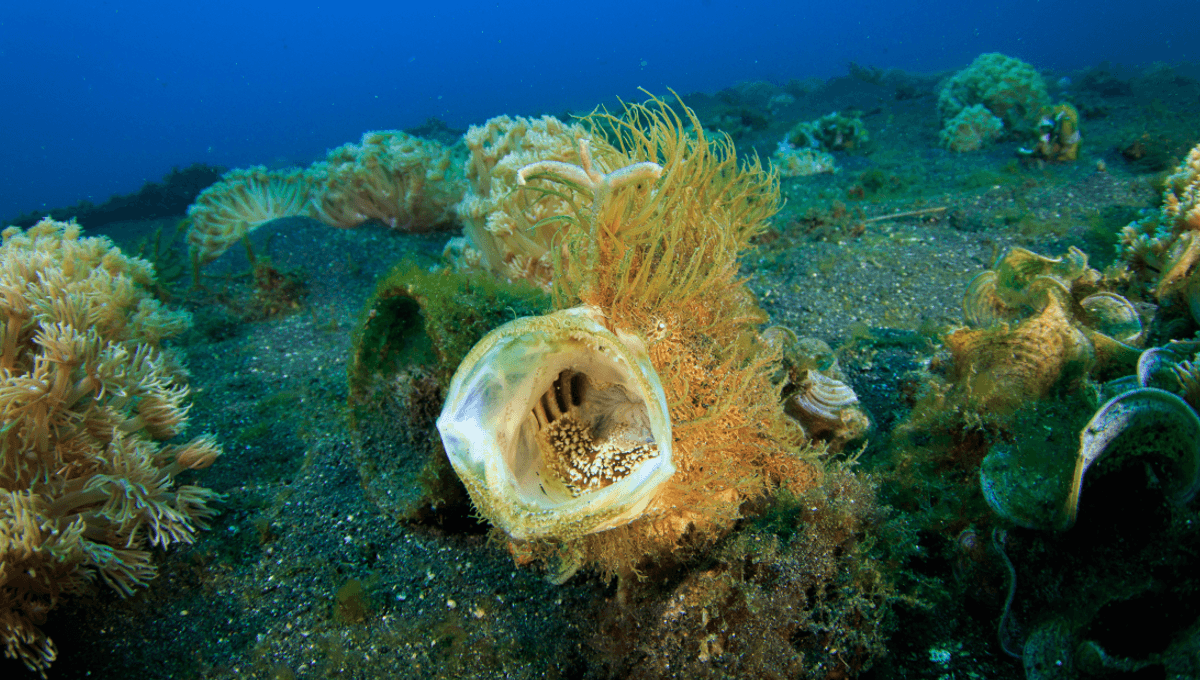
Chances are you’ve yawned today, and if you haven’t, I expect you’re about to. It’s a daily practice for we weary humans, but yawning isn’t unique to our species. Far from it.
Yawning is seen in a diverse range of animal species, both those that live on land and underwater, but do all animals yawn? We wanted to know, too.
“Not all animals yawn, but it seems that all vertebrates yawn or show very similar yawn-like gaping patterns with their jaw,” said Dr Andrew Gallup of Johns Hopkins University to IFLScience. “This yawning behavior has been documented in fish, amphibians, reptiles, birds, and mammals. So, it seems that it likely evolved initially within jawed fish, and that subsequently it has been conserved within the vertebrate lineage.”
Gallup is teaching professor of behavioral biology at Johns Hopkins University. During the course of his academic career, he’s studied a wide variety of topics exploring behavior from an evolutionary perspective, but one consistent theme has been the examination of the functional significance of yawning in humans and non-human animals. So, if yawning is so widespread, what actually is it?
Yawning is an extended stretch that’s localized to the skull, and what that does is it functions to increase blood flow to the brain.
Dr Andrew Gallup
“Yawning is an extended stretch that’s localized to the skull, and what that does is it functions to increase blood flow to the brain,” said Gallup. “It introduces arterial blood supply while simultaneously flushing away venous return, and this likely has important functions in arousal and transitions in behavioral states across diverse species.”
It’s for this reason that it seems so unjust that yawning has become stigmatized in human culture. Crack one out and you’ll likely receive accusations of being bored or rude. It seems ironic, really, because the science of yawning tells us that, if anything, it’s a sign you’re trying harder to pay attention.
Lucky for the rest of the animal kingdom, then, that they can yawn with aplomb, free from the fear of persecution. And as for why it emerged in such a diverse range of animal groups? It’s an interesting topic to explore, but one we’re still working on.
“The yawning-like behavior that is observed in fish and even marine mammals is very, very similar to the yawning behavior we see in terrestrial vertebrates,” said Gallup. “Yawning is highly stereotyped, so it takes on a typical action pattern that is common across species, which makes it very interesting to study, because we can identify it readily in non-human animals.”
“There is a lot of research examining the functional significance of yawning. The fact that it is conserved across such a diverse array of species suggests that it has an adaptive function, and the research suggests that that adaptive function is to enhance blood flow to the brain and to promote arousal and transition from states of inactivity to activity, and activity to inactivity.”
Another curious phenomenon that Gallup has investigated is contagious yawning, whereby an individual effectively catches a yawn off another individual. This can be human to human, or human to
It could be that contagious yawning is simply a byproduct of the evolution of other highly sophisticated mechanisms associated with social cognition in group living, where we pay really close attention to the behaviors of conspecifics.
Dr Andrew Gallup
“We are only really beginning to uncover why yawning is contagious, but we do know that in humans – and a growing number of non-human animals – that seeing or hearing other individuals yawn increases the tendency for observers to yawn,” said Gallup. “So, the proximate or underlying mechanisms for contagious yawning are merely detecting this action in others and in humans. This can even be initiated by thinking about yawning or reading about yawning.”
“Why that takes place remains unclear. It could be that contagious yawning is simply a byproduct of the evolution of other highly sophisticated mechanisms associated with social cognition in group living, where we pay really close attention to the behaviors of conspecifics, or the members of our own species, and we would begin to mimic them and copy these responses in an unconscious way to facilitate collective behavior, synchronization, and group movement.”
“Or, it could be that contagious yawning is, in fact, adaptive in the sense that again, it may facilitate those processes of coordinated movement and synchronization within a group, perhaps in ways that enhance survival and reproduction by, for example, potentially enhancing vigilance to potential outside threats. Or, again, just synchronizing group behavior, and promoting safety within groups.”
It’s a curious idea in the context of yawning, but contagious behaviors get even weirder when urine comes into the equation…
Source Link: Do All Animals Yawn? No, But There Are Animals That Yawn Underwater